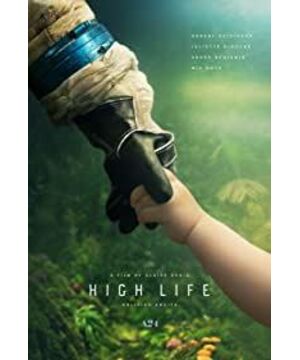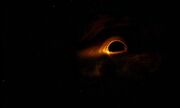Internship in the Icelandic film industry this year, Cladney is the award-winning director of the Honorary Lifetime Achievement Award. He was invited to Iceland to receive the award + give a lecture. During the period, I took the time to watch high life (this Chinese name is so boring to translate and has no poetic meaning at all. Although the original English name is also very simple, it can be interpreted into several different meanings). I haven't watched other films of this director before, so I can't compare or analyze with her previous works.
About the movie itself. The vision of the film is a genre that I like very much, the color tone, the rhythm, the cut, the fragmentation of the narrative, some slow, some suffocating, there is a sense of dissociation and unreality, just like the entire space journey itself. In a closed, prison-like space capsule, living a long and boring day, slowly sailing towards an unknown black hole, the people in the cabin must have affected their perception of time, and the concept of time has become very important. Small and unimportant anymore. The film itself also shapes this atmosphere, with broken timelines, jumping back and forth, and video fragments, echoing this dissonance of time perception.
The director said in the lecture that the important thing for her in this film is not the narrative or the dialogue itself (not to mention that this is the first time she has directed an English film, and she admits that her English is not very good, haha), so the dialogue in this film They are all very minimalist. She said that for her, the use of visual images to depict a specific atmosphere is the most important part of her. She uses various levels of visual images to depict an emotion that cannot be described in words, and the atmosphere is her focus for this film. The viscous, moist, and dark atmosphere created by this film is very ambiguous, violent, heavy, and intimate, with a lot of steam and flowing unidentified liquids, just like a few in the cabin that have nothing to do with each other. The flesh and desire of the person imprisoned.
The director said that many space films now focus on special effects, mechanical design, and plots that are about aliens attacking the earth, or humans exploring aliens and other relatively sci-fi trends. The earliest space movies were actually sexy. Foreign media also called Claire's space film a "sexy" space film. This film can be said to be not a space film that we are familiar with. There is no picture depicting the mysterious and vast universe, or the advanced equipment of a spacecraft. Basically, the director is telling a very humanized story. The discussion about human emotions, flesh, morals, and desires is placed in an isolated space, and the setting of space amplifies this sense of isolation and extends to the universe. In the depths of darkness, I feel lonely like never before.
The most interesting part for me is that after the film ended, I found out that the art director of the film was the Icelandic artist olafur eliasson. Those who are familiar with Eliasson's light art will agree that the light and shadow of this film are very colorful, especially at the end of the film. When the father and daughter gradually approach the black hole, the film suddenly plunges into deep darkness, with only a dazzling yellow light across the screen. This yellow light is a work of the artist. In the lecture, Claire shared her experience of cooperating with olafur, saying that she was looking for a light sculpture that could symbolize black holes in the artist’s studio in Berlin. This simple yellow light, although in shape, interacts with people. The image of the known black hole is not close, but she found that when the hand is close to the light pipe, the color of the skin changes, and the skin can feel the energy emitted by the light pipe. This special energy is in line with her personal opinion. Artistic visualization of black holes.
For the end of the film, the director was very open to say, yes, she just wanted to point out the inevitable incest between the father and daughter in the end. This is a taboo that people refuse to accept, but it will inevitably happen. This is a very human story, and sex is a very human topic. When time itself has lost its meaning, when the father and daughter have nothing but each other in their entire lives and the entire world, the rules and morals of the entire human world have been measured. So far away from them, and slowly approaching them is an unknown black hole and unknown human possibility. This so-called taboo does not seem to be that important anymore. . . ?
View more about High Life reviews











